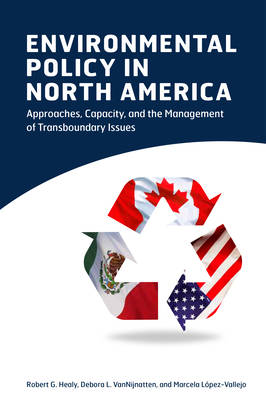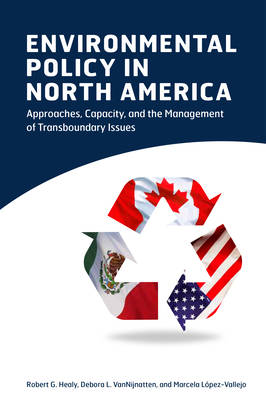
- Afhalen na 1 uur in een winkel met voorraad
- Gratis thuislevering in België vanaf € 30
- Ruim aanbod met 7 miljoen producten
- Afhalen na 1 uur in een winkel met voorraad
- Gratis thuislevering in België vanaf € 30
- Ruim aanbod met 7 miljoen producten
Environmental Policy in North America
Approaches, Capacity, and the Management of Transboundary Issues
Robert G Healy, Debora L Vannijnatten, Marcela López-VallejoOmschrijving
This comprehensive analysis of key issues in North American environmental policy provides an overview of how the US, Mexico, and Canada differ in their environmental management approaches and capacity levels, and how these differences play into cross-border cooperation on environmental problems. The book offers insights into transboundary cooperation both before and after NAFTA, and presents a framework for making environmental interaction more effective in the future.
The book is organized into two parts. The first, more general, section compares the national contexts for environmental management in each country--including economic conditions, sociocultural dynamics, and political decision-making frameworks-- and shows how these have led to variations in policy approaches and levels of capacity. The authors argue that effective environmental governance in North America depends on the ability of transboundary institutions to address and mediate these differences. The book's second section illustrates this argument, using four case studies of environmental management in North America: biodiversity and protected areas, air pollution (smog); greenhouse gas reduction, and genetically modified crops.
Specificaties
Betrokkenen
- Auteur(s):
- Uitgeverij:
Inhoud
- Aantal bladzijden:
- 224
- Taal:
- Engels
Eigenschappen
- Productcode (EAN):
- 9781442601796
- Verschijningsdatum:
- 20/01/2014
- Uitvoering:
- Paperback
- Formaat:
- Trade paperback (VS)
- Afmetingen:
- 150 mm x 226 mm
- Gewicht:
- 294 g

Alleen bij Standaard Boekhandel
Beoordelingen
We publiceren alleen reviews die voldoen aan de voorwaarden voor reviews. Bekijk onze voorwaarden voor reviews.











